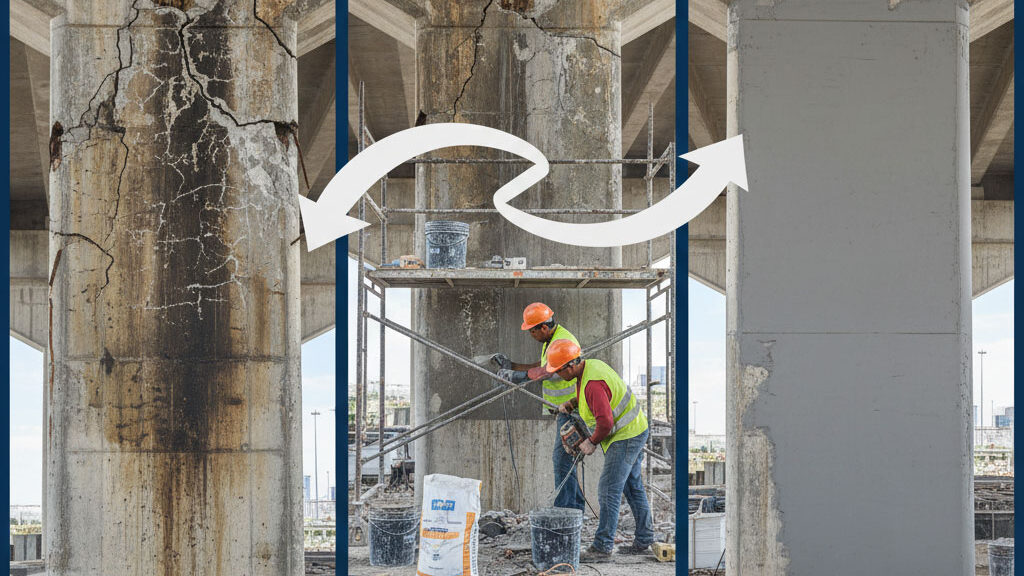
Concrete is a fundamental component of many homes and commercial buildings, forming foundations, driveways, sidewalks, and walls. Over time, even the strongest concrete can develop cracks, spalling, or other forms of deterioration.
If left untreated, minor issues can escalate into serious structural problems that compromise safety and require costly repairs.
Understanding when to repair concrete is essential for property owners. Early intervention can prevent bigger structural damage, extending the lifespan of your investment and protecting both value and safety.
Recognizing Early Warning Signs of Damage
Timely repairs start with recognizing the warning signs before they worsen. Minor cracks or stains often indicate underlying issues that could escalate.
- Small hairline cracks in driveways or walls.
- Surface spalling or flaking where the concrete loses texture.
- Water pooling around foundations or slabs.
- Uneven settling or bulging in concrete surfaces.
Identifying these signs early allows you to address the problem before it affects the structural integrity of your property. Regular inspections are a simple way to catch damage before it becomes serious.
How Minor Repairs Prevent Major Issues
Concrete repairs fix minor problems before they evolve into major structural damage. Prompt action can save money, prevent hazards, and maintain the property’s functionality.
- Sealing cracks prevents water infiltration that could erode the foundation.
- Patching spalled areas stops small defects from spreading.
- Reinforcing weakened sections ensures stability.
- Addressing drainage issues protects surrounding concrete and soil.
Early repairs act as a preventative measure. They maintain the strength of the structure and reduce the risk of extensive, expensive repairs later.
The Role of Timely Intervention in Foundation Safety
Concrete foundations bear the weight of entire structures, making their integrity crucial. Even small cracks or moisture damage can compromise stability if ignored.
- Water intrusion can weaken the soil and foundation.
- Settling or shifting may lead to uneven floors and walls.
- Expanding cracks can cause structural stress over time.
- Frost or freeze-thaw cycles can worsen minor damage.
Repairing concrete at the first sign of trouble protects the foundation from larger issues. This ensures the home or building remains safe for years to come.
Why Professional Assessment Matters
Not all concrete damage is obvious, and improper repairs can make the problem worse. Professional contractors can accurately assess the severity of the damage and recommend the right solution.
- Thorough inspections identify hidden or structural issues.
- Proper repair techniques prevent further cracking or failure.
- Use of quality materials ensures long-lasting results.
- Advice on maintenance helps prevent future problems.
Expert evaluation ensures repairs are effective and durable. This professional insight helps avoid unnecessary replacements or recurring damage.
Long-Term Benefits of Prompt Concrete Repairs
Repairing concrete promptly has benefits that extend well beyond the immediate fix. Early intervention protects both the property and your investment.
- Preserves structural integrity of walls, foundations, and driveways.
- Reduces long-term repair costs by addressing problems before they worsen.
- Maintains property value and visual appeal.
- Enhances safety for residents, visitors, and employees.
Proactive repairs save money, prevent hazards, and keep the property in top condition. Timely action ensures concrete surfaces remain strong and reliable.
Protect Your Property by Acting Early
Concrete repairs are most effective when carried out at the first signs of damage. Waiting too long can turn minor issues into major structural concerns that compromise safety and increase costs.
Addressing problems early maintains the strength, durability, and value of your property. Timely repairs are not just a fix—they are a proactive investment in the long-term protection of your home or building.

